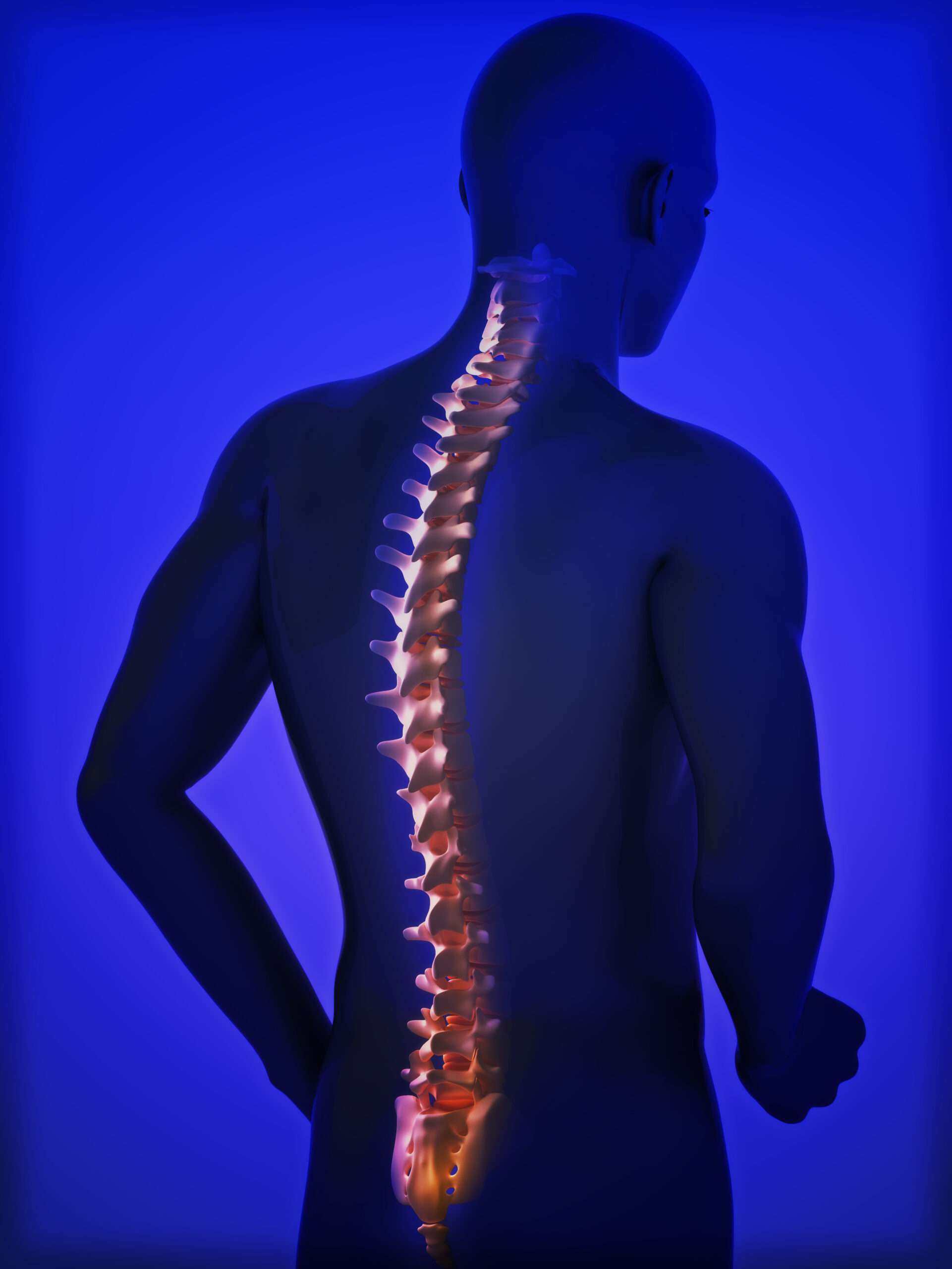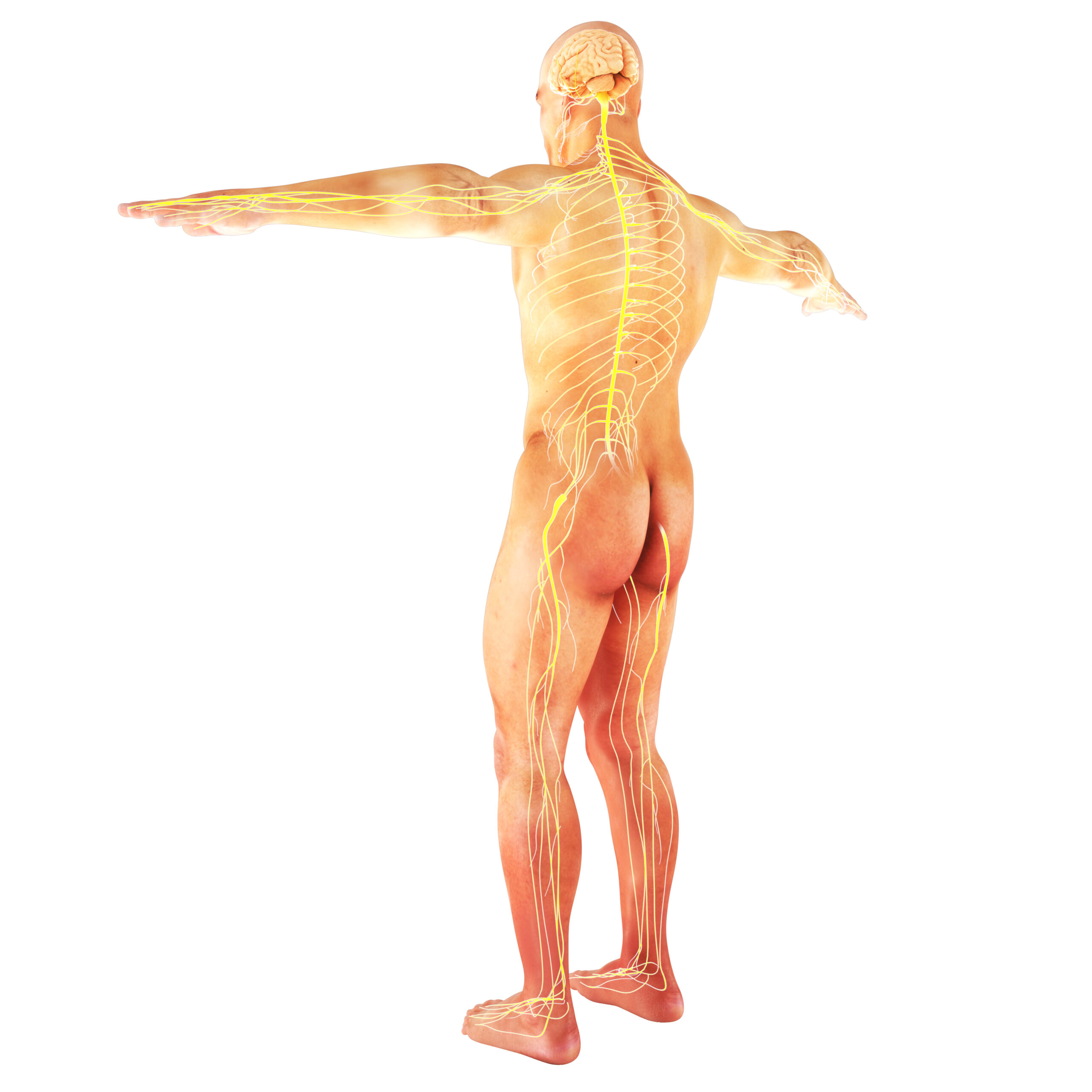Are spinal alignment and weight-loss connected? You might find this conversation fascinating if you’re battling stubborn weight. If you’re familiar with the holistic approach to health, you already know that what happens in one part of the body impacts every part of the body. That’s why spinal misalignments cannot be ignored when you’re focusing on getting healthy. Let’s take a look at the surprising link between spinal alignment and weight.

A Spinal Misalignment Can Make the Whole Body Imbalanced
Let’s talk about what a spinal misalignment really means for your body. When you have a spinal misalignment, part of your spine has been shifted out of its proper position. This creates a stress response throughout the central nervous system and musculoskeletal system. Your body is on “red alert” due to the compression caused by the spinal misalignment.
This creates a cascade of symptoms that can include:
- Pain.
- Stiffness.
- Headaches.
- Neck pain.
- Knee pain.
- Numbness and tingling.
- Excessive fatigue.
- Decreased mobility.
- Decreased range of motion.
- Impaired circulation.
- Illness/compromised immune function.
A spinal misalignment throws your body into a state of distress. Being in a physically distressed state is linked with weight gain. It’s a major “light bulb” moment if you’re struggling with weight gain.
If pain and tension at the site of a spinal misalignment trigger the production of a stress hormone called cortisol, you could be in for a vicious cycle of weight gain. Cortisol is released when we’re under stress to help activate our fight-or-flight response. However, prolonged elevated cortisol levels in response to a chronic misalignment can lead to weight gain.
One of the functions of cortisol is to increase hunger and cravings to ensure that we take in enough calories during a high-stress situation. That means we often crave sugary, high-fat foods when cortisol is dictating hunger. While cortisol’s purpose is to keep you alive in a high-danger situation, the instinct to eat “unhealthy” foods doesn’t actually benefit you when your body’s stress response is caused by a spinal misalignment. In fact, cortisol’s influence on your appetite can actually make the problem many times worse because you’re now adding sugary, highly refined foods that are triggering inflammation in your body.
Lastly, an excessive cortisol response that’s triggered by a spinal misalignment can actually cause your body to reduce its testosterone production. This spins the wheels of runaway weight gain even more because testosterone helps us to build lean muscle mass. Ultimately, an untreated spinal misalignment that creates stress in your body can cause you to eat more while reducing your body’s mechanism for efficiently using fat and calories! The good news is that your body can be shifted out of the stress response one your spinal alignment is corrected with a spinal adjustment.
The Autonomic Nervous System and Obesity: What It Means for You
The autonomic nervous system is made up of the sympathetic and parasympathetic nervous systems. Your sympathetic nervous system connects your internal organs to the brain via your spinal nerves. It may suddenly make sense to you why a spinal misalignment can have such a big impact on the rest of your body once you know this! Researchers are actually beginning to dig into the deep connection between the autonomic nervous system and obesity.
We know that the nerves in the spinal column are responsible for relaying messages between the brain and body. This important role means that any blockages or misalignments within the spinal column may lead to those important messages being “scrambled.” This is precisely why researchers believe that spinal misalignments may actually lead to weight gain. The thought process here is that a misalignment could actually prohibit the accurate transfer of hunger cues. As a result, a person with a misalignment may feel hungrier. Getting your spine back in alignment to restore the proper function of important signals between the brain and body may help you “snap back” into healthier eating patterns by restoring true hunger cues.
Reduced Mobility and Weight Gain
The connection between weight gain and a spinal misalignment is sometimes as simple as the fact that living with pain makes us more likely to be sedentary. Is this something you’re struggling with? If a spinal misalignment has caused back, neck, leg, or arm pain for you, you may be finding that getting to the gym, going for a walk, or doing household tasks can exacerbate your pain. What’s more, the stiffness and loss of flexibility that often accompanies spinal misalignments can make it difficult to “give your all” to workouts.
Drifting into a sedentary lifestyle because of pain harms you on many fronts. First, the ratio of calories in versus calories burned simply doesn’t work in your favor if you’re spending most of your time sitting. Next, not being active can cause your muscles to atrophy. This speeds up weight gain because muscle mass burns more calories than fat. Lastly, pivoting to a sedentary lifestyle can actually weaken muscles and joints to put you at risk for other serious injuries that can cause you to become even more sedentary. Getting relief from spinal misalignment symptoms using an adjustment may have you springing back to life before you know it!
Talk to a Colorado Chiropractor About Spinal Alignment and Weight Loss
At Barnes Chiropractic in Centennial, our holistic, whole-body approach to wellness means that we understand that what’s happening with your waistline may be originating in your spine. We’re focused on helping you get to the root cause of your weight gain to create a tailored plan that looks at your health from the angles of diet, exercise, lifestyle, health history, and possible misalignments that are generating inflammation. Our friendly Centennial chiropractic office empowers you to live the healthiest life possible. If you’d like to come into the office to learn more, please call (720) 985-0056 or book online today!

